Secret tapes reveal Adelaide City councillor Jing Li promised ‘associates’ support from Premier, police chief, court told
An Adelaide City Councillor was secretly recorded promising “associates” support from the Premier and Police Commissioner if he was elected, a court has heard.
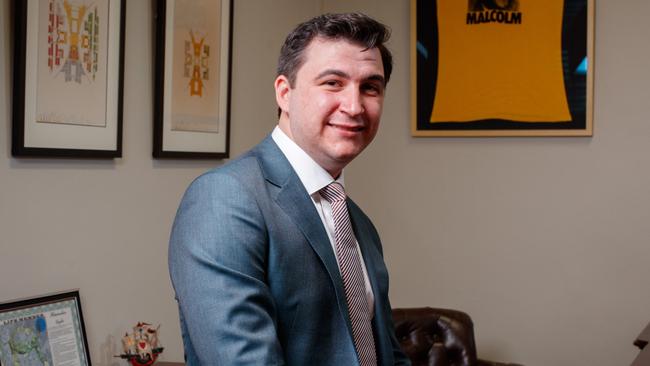
SA News
Don't miss out on the headlines from SA News. Followed categories will be added to My News.
Covert audio recordings allegedly support claims a city councillor was involved in “illegal” ballot practices and promised his “associates” the support of the Premier and SA Police Commissioner if he was elected, a court has heard.
Defeated Adelaide City councillor Alexander Hyde has asked the Supreme Court to order three secret audiotapes be released to him ahead of his legal bid to overturn the election and unseat Central Ward winner Jing Li.
Mr Li has hit back, telling the court there is “not a skerrick” of wrongdoing on the tapes – and that there is nothing illegal about a candidate seeking support or encouraging people to vote.
But Philippa Ewens, for Mr Hyde, said that did not accord with recordings made of Mr Li’s alleged associate, karaoke bar owner Chenkang Wang.
“Mr Wang says Mr Li visited him several times at the KTV bar, promised to support his plan to open another bar, and said he thought he could get the SA Premier and chief of police to attend the grand opening,” she alleged.
“He said he had obtained 20 ballot papers, that 10 of them had been completed by him (Mr Wang) and another student.
“He also said that the other 10 had been posted to Jing Li’s office and Jing Li had signed those on behalf of the voters.”
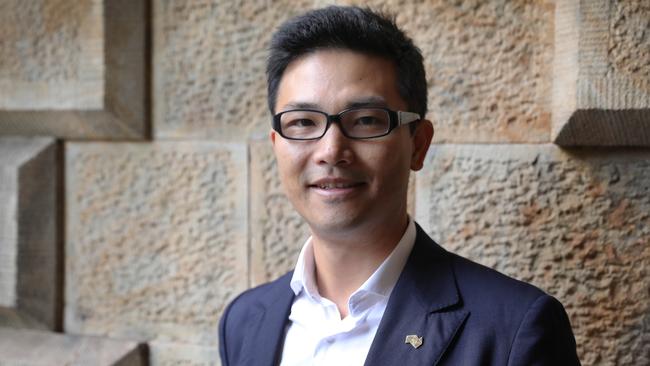
Mr Hyde has petitioned the Court of Disputed Returns to overturn his loss in last November’s election, and says the tapes, held by the Electoral Commission, are crucial to his case.
He has claimed Mr Li offered jobs to people who “obtained the most enrolments” resulting in “illegitimate votes” – accusations that Mr Li has repeatedly denied.
Previously, Mr Hyde’s counsel has told the court there are “ballots the Electoral Commissioner himself felt were affected by illegal practices”.
Those ballots, they told the court, “tended in a significant majority of cases to favour Mr Li over Mr Ward”.
This week, Ms Ewens told the court the first recording was made by a man named Colin Ma during a meeting with Mr Wang and Mr Li in May at Diaspora Kouzina, Pulteney St, in May 2022.
Mr Ma is not accused of any wrongdoing.
“Mr Ma says that Mr Wang told him that Mr Li had plans to become mayor one day,” she said.
“At the meeting, Mr Li told Mr Ma of his plan to obtain people’s support for the election.”
The second recording, she said, was made by Mr Ma at Mr Wang’s home in November 2022, during which ballot papers, the Premier and Commissioner were discussed.
“(This) conduct is very much of the nature alleged, in the petition, to form the basis of illegal practices which, my client asserts, were committed by Mr Li or associates of Mr Li,” she said.
“It forms the basis of why my client says the election should be declared void.”
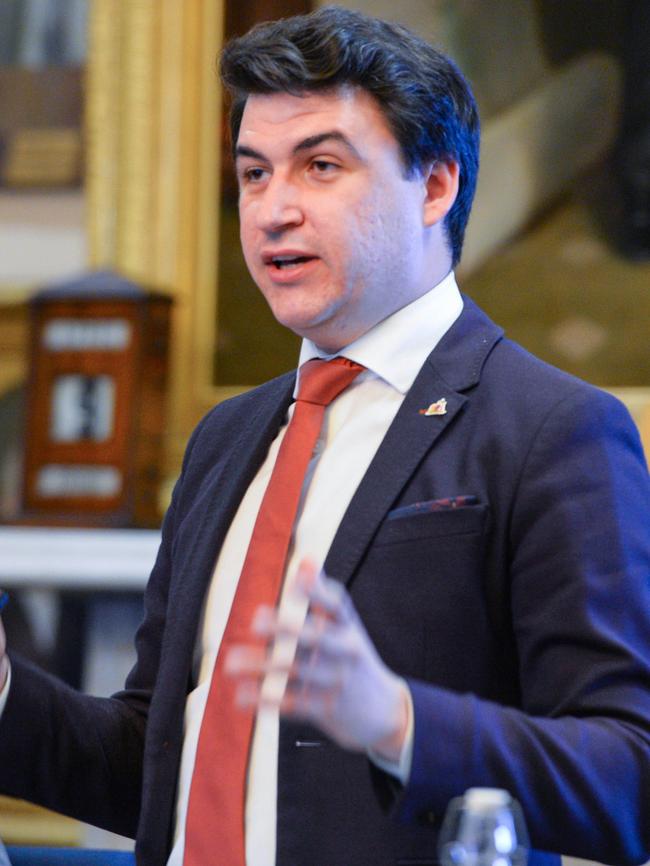
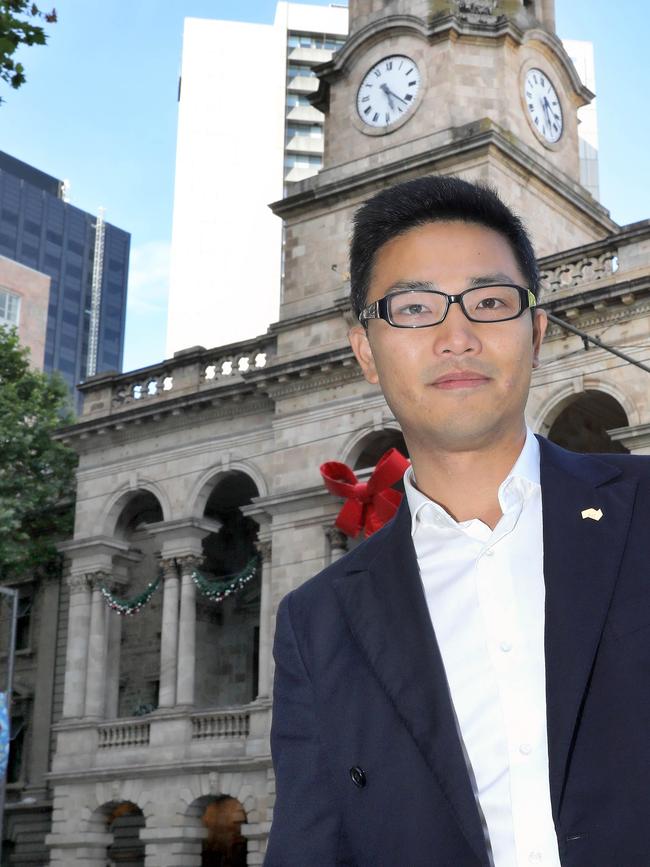
The third recording, she said, was made by the wife of councillor Simon Hou at Stonemill Rice restaurant on Morphett St in October 2022.
Mr and Mrs Hou are not accused of any wrongdoing.
Stonemill is on the ground floor of the Visions building – a property that, Mr Hyde alleges, was targeted by Chinese people collecting ballot papers that had not yet been filled out.
Ms Ewens said her client’s petition alleged those people to be William Bai, director of Majesty Real Estate, and a man named Keith Jing.
“They were seen in the vicinity of Visions handling a large stack of open voter packs, and Mr Bai handed unfilled voter packs to Mr Jing,” she said.
“My client has deposed to his understanding that the audio recording is of conversations in which admissions were made, by Mr Bai, of involvement in dishonest processes.”
She said the court should release the recordings to Mr Hyde because the “integrity of an election process, and maintaining that” was of “significant public interest”.
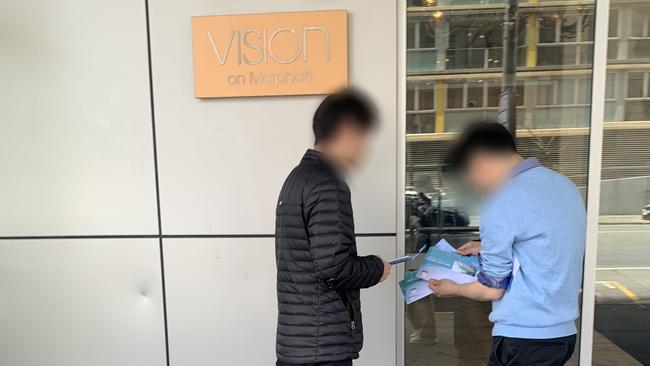
“An election being executed (with) voters not being influenced unduly, and people being elected as representatives of the public that the public voted for, is in the public interest,” she said.
Damian O’Leary SC, for Mr Li, said the court lacked “direct evidence” about why and how the recordings were made, nor any proof they had not been edited nor altered.
He said the excerpts described in court had demonstrated no wrongdoing.
“There’s nothing unlawful, indeed it’s entirely orthodox for any candidate in an election not only to have people enrol but to ask them to vote for them,” he said.
“There’s no indication, not a skerrick of evidence, to indicate there’s any illegal activity identified.
“As high as this evidence goes is that there’s a suggestion that support for a candidate might be good in the long run because he’s going to be an important person.”
Justice Adam Kimber has reserved his decision.





